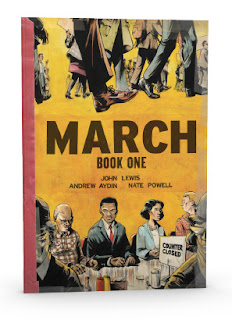Last week I introduced the idea of trying to eliminate multi-tasking as a way to slow down our work and actually become more productive. Anne Marie O'Connor's article, Why You Should Be Single-Tasking, Not Multitasking & How To Make The Switch provides four suggestions on how to do that. I'm going to combine three of them that I think can be helpful for writers into two blog posts. Today, people, we will cover to-do lists and prioritizing.
To-Do Lists
I am a big fan of to-do lists. Big fan. In fact, when I'm done here, I have to work on
my to-do list for this week, my preferred unit of time for planning.
 |
| My modified bullet journal/to-do list |
Writers have more control over our to-do lists than people who work in traditional situations do. We may be bound by priorities (see below) and we may have day jobs that we have to factor in. But, otherwise, for our work we have more control than people who have daily supervisors or hourly appointments to maintain.
In terms of slowing down: If something unplanned comes up, particularly something from someone else, and you can avoid doing it, avoid it. Stick to the to-do list. Many time management people will tell you to delegate whatever you can. For many writers that just isn't an option. We don't have anyone to delegate pop-up tasks to.
So avoid what you can by planning to do it another time. Put the new thing on tomorrow's to-do list or next week's or however you organize your to-dos. Particularly if you're trying to work on a long-term project, you don't want to keep going off-task to fight every short-term fire that can be taken care of another time.
Going off task because of new tasks, increases the workload, and contributes to a feeling of being rushed and overwhelmed. None of which is going to have a good impact on productivity. So if you can slow down by putting something on another to-do list, do it.
How Do Writers Prioritize?
You're going to want to prioritize your to-do list, if only in terms of what you put on it. Be specific with your priorities, so that you know exactly what you plan to do. "Write" is more of a subject than a prioritized item on a to-do list.
To-do list priorities to consider:
- Your goals and objectives. You will recall, I'm sure, that in addition to being a fan of to-do lists, I am a fan of goals and objectives. A big fan. You've created them, because they are things you plan/need to do. You should always be checking to make sure that objectives toward your goals are part of your to-do list.
- Deadlines. Deadlines from editors or agents, if you have someone waiting for work. Those will be a top priority.
- Submission dates. Some agents and publications will open for submissions for a specific period of time. If you have someone/something like that you're interested in submitting to, keep track of the dates and whether you need to be doing anymore work on your manuscript in order to submit.
- Objective deadlines for major projects/goals. Got a big writing project you're doing on spec with no agent or editor involvement? You can create your own deadlines for it by breaking it down into the objectives you need to do in order to meet the goal of getting the project written. Those objectives can then become items on your to-do list. I'm talking things like research and even breaking that down still further into different types of research. Character development. Outlining, if you do that. Planning scenes, something I'm getting into. Then after you have an outline or scene list, items on the outline or individual scenes can become priorities that you place on your to-do list.
Presumably everything on your to-do list is some kind of priority. If you stick to working on those items, and only those items, you have a chance of keeping yourself from becoming overwhelmed and having to hurry because yourself trying to do things that just aren't necessary right now. This could be a big step toward slowing down.





























